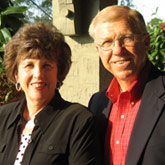Theirs were among the most profitable investments ever made. One led to the translation, printing, and distribution of the English Bible — no less than the English Reformation. Another led to the gospel being heard by millions. And a third helped lead to the abolition of slavery in Great Britain.
History rightly ties such God-glorifying, Kingdom-building efforts to William Tyndale, George Whitefield, and John Newton. But behind each man was someone who not only funded their work, but who provided friendship, encouragement, good counsel, and opportunities. In these cases, they were Humphrey Monmouth, Lady Huntingdon, and John Thornton, respectively. “Gospel patrons” is how John Rinehart describes them in his book by the same name.
The Tyndale/Monmouth partnership
William Tyndale, an English preacher who lived from 1494 to 1536, was burdened by the fact that few English-speaking people knew Latin, the primary language in which the Bible was available. Although there were translations into various languages, unauthorized Bible translation was prohibited by the Pope.
Even worse, Tyndale, who had read the New Testament in its original Greek, believed that some common church beliefs and practices — purgatory, indulgences (a form of restitution for sins), confessions to a priest — were based on mistakes. As described in Rinehart’s book, Tyndale wanted to “steer England back to Christianity’s true core — faith alone in Jesus Christ.”
Just when Tyndale was most in need of financial support, a wealthy English cloth merchant by the name of Humphrey Monmouth stepped in, providing funding and much more. Impressed by the clarity of Tyndale’s preaching and compelled by his vision of a broadly distributed English New Testament translated from the Greek text, Monmouth provided a place for Tyndale to live and work on his translation, arranged for Tyndale to move to Wittenberg, Germany’s Reformation hotbed, to continue his work, and then used his connections with merchants to have thousands of English Bibles smuggled into England.
Eventually, Tyndale was imprisoned (by King Henry VIII) and sentenced to die for heresy. Monmouth, too, spent time in prison for his work helping Tyndale.
Tyndale’s final prayer, shouted just moments before his execution, was that the King of England’s eyes eventually would be opened. Two years after Tyndale’s death, that prayer was answered, with the king ordering every parish church to receive its own copy of the English Bible. Some 75 years later, King James authorized an updated English translation that drew heavily from Tyndale’s work. As Rinehart put it, the Tyndale/Monmouth partnership “lit the fuse of the English Reformation.”
The Whitefield/Huntingdon partnership
George Whitefield was a passionate and gifted preacher who lived from 1714 to 1770. At a time when crossing the ocean was a risky proposition, he made numerous trips between England and America, tirelessly preaching an estimated 500 sermons a year for 34 years.
His work was funded in large part by Lady Huntingdon, a wealthy heiress and English aristocrat who saw the pride and depravity that wealth can bring. Widowed at a young age, burdened to reach the wealthy and influential in England, and uniquely positioned to do so, she opened her home to prominent politicians, actors, writers, “lords and ladies,” and some members of the royalty. All were invited for the express purpose of having her friend, George Whitefield, bring the gospel to them.
Through the Whitefield/Huntindon partnership, many people who otherwise would not have attended church heard the gospel and millions of others at fields and fairs. According to Rinehart, Whitefield’s evangelism “gave America a united theological backbone that shaped the nation for generations to come." After Whitefield’s death at the age of 55, Lady Huntingdon continued funding countless seminary students who went on to plant new churches, bringing the gospel to many unreached parts of England.
The Newton/Thornton partnership
John Newton, who lived from 1725 to 1807, was a former slave trader who became an influential preacher and author of many hymns. He also became an outspoken abolitionist and mentored William Wilberforce during the parliamentarian’s 20-year campaign to abolish slavery in England.
John Thornton, a passionate Christ-follower, was a wealthy London businessman. In 18th-century England, church pulpits were controlled by wealthy patrons. Under this system of “livings,” people of means could appoint their favorite preachers to a particular church. Thornton used that strange system for good, filling numerous churches with gospel-preaching ministers.
After learning about Newton by reading his autobiography, the two men struck up a friendship, lived out mostly in letters they exchanged. Many of Newton’s letters contained hymns, which Thornton soon encouraged him to print. In fact, he funded the printing by purchasing 1,000 copies of one of his first collections. Tucked away in that book was number 41, which was entitled, “Faith’s Review and Expectation.” Today, it is known the world over as “Amazing Grace.”
Through his friendship with and the patronage of John Thornton, a new door of opportunity soon opened for John Newton. The pastor of a downtown London church passed away, giving Thornton, who owned a share in the church’s living, the chance to install Newton as pastor. Among those who attended that church was a member of parliament, William Wilberforce, who was struggling to reconcile his Christian faith with his work in politics. It was largely through his friendship with Newton and the pastor’s counsel that Wilberforce decided to stay in politics.
Today, many people know of William Wilberforce’s role in ending slavery in most of the British Empire, some know of John Newton’s influence on Wilberforce, but few remember the essential role played by Newton’s patron, John Thornton.
Where are today’s gospel patrons?
I read Gospel Patrons recently as part of a discipleship group I’m in and it made me wonder how I could be more involved in the lives and work of those my wife and I support. We give money and happily read ministry reports, but how often do we call or send notes of encouragement? While we have had some people we support stay in our home, we’ve never put together a gathering of friends who would be encouraged in their faith, or perhaps introduced to the gospel, by hearing from such people.
Recently, even before reading Gospel Patrons, I called a missionary friend to ask for his input about an issue where he has expertise. As expected, he provided helpful insights and good counsel. At the end of our call, I thanked him, of course, but then he did something I didn’t expect. He thanked me. He was glad to have someone seeking his perspective.
It turns out that he has been feeling marginalized in his ministry. He’s older than many of the others on his team, and he’s been sensing that some are rejecting his ideas simply because of his age. I had no idea, and was so glad to be a source of some encouragement to him.
That experience, along with reading Gospel Patrons, made me want to do more than just provide financial support for God’s work in the world. And it provided a convicting reminder that the last time I took a member of our church’s staff to lunch it was mostly to talk through a concern I had about something happening in his ministry area.
Going forward, I plan to write notes and take ministry friends to lunch just to be an encouragement. And my wife and I have started talking about ways we might eventually use our home to provide ministry opportunities for those that we support.
What about you? Would you join me in prayerfully considering how to become more than just financial supporters of the Gospel? How could we become Gospel patrons — true, multi-faceted partners in the lives and work of those we support?









